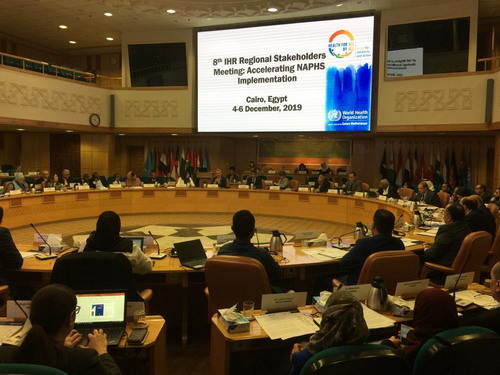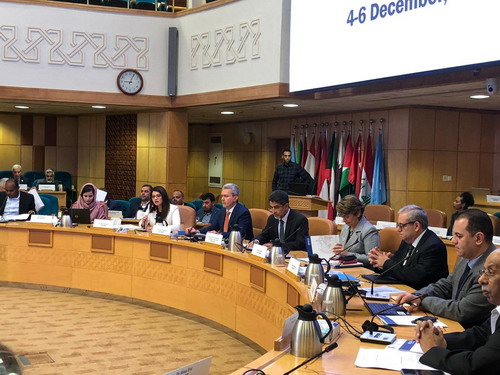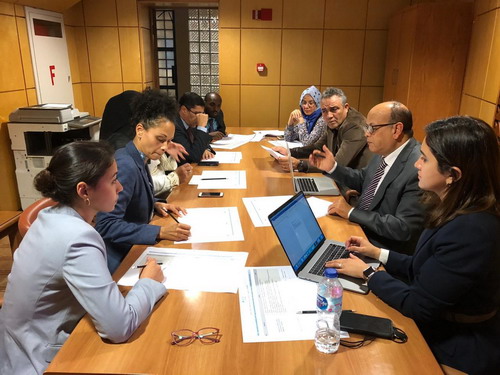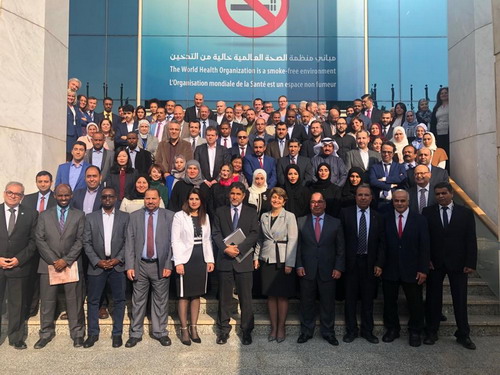
Cairo, 17 December 2019 – At the brink of a new decade, we find ourselves facing a period of uncertainty that permeates all levels, from the global to the regional to the local. In such times, preparedness in the face of potential health emergencies is more critical than ever, as health security becomes a key priority on the global and regional health agendas.
In this context, the eighth regional stakeholders meeting to review the implementation of the International Health Regulations (IHR) 2005 was held at the WHO Regional Office in Cairo, Egypt, from 4 to 6 December 2019. The purpose of the meeting was to accelerate implementation of national action plans for health security (NAPHS) by providing an update on progress in the implementation of IHR-related activities at the country level and addressing the gaps and challenges that have arisen. The meeting was attended by more than 140 participants, including representatives of countries and international partners.

In his opening address, Dr Ahmed Al-Mandhari, WHO Regional Director for the Eastern Mediterranean, highlighted the importance of NAPHS implementation for building country capacity in health emergencies preparedness and response.
“Ensuring that plans are properly financed and supported with sustainable resources is crucial to ensure their successful implementation, as is establishing transparent mechanisms for countries to strengthen their IHR core capacities to pursue national and global health security” he said.

Over the three days, the meeting provided a forum for lively discussion and debate, as well as a valuable opportunity for country-to-country exchange of best practices and lessons learned from NAPHS implementation. Meeting sessions also provided a platform for the introduction of several new tools and innovations to aid IHR implementation, including training packages and tools for NAPHS prioritization and monitoring and evaluation. Specific priority areas such as zoonotic diseases, climate change and disaster risk reduction were covered within the One Health framework. Several group work sessions and plenary discussion allowed for the exploration of challenges, priorities and the ways forward.
“The meeting raised overall IHR awareness, increased networking and gave a better appreciation of the tools that are available,” remarked one participant.
During the meeting, there was a display of posters prepared by countries that showcased progress in NAPHS implementation, contributing to country-to-country exchange.
Recommendations from the meeting addressed enhancing multisectoral collaboration, determining priority technical areas, increasing capacity-building activities and continuing knowledge exchange between countries, with WHO reaffirming its commitment to provide ongoing technical support.
“Countries walked away at the end of the IHR stakeholders meeting today with a list of priority actions to jump-start national action plans for health security. They also have access to new tools from WHO and partners to help implementation,” said Dr Dalia Samhouri, WHO Programme Area Manager for Country Health Emergency Preparedness and IHR at the WHO Regional Office.

The key outcomes from the meeting will feed into the upcoming first health security diplomacy meeting taking place on 24‒26 March 2020 in Marrakesh, Morocco, which will provide a forum for continuing multisectoral collaboration and coordination for IHR implementation.


